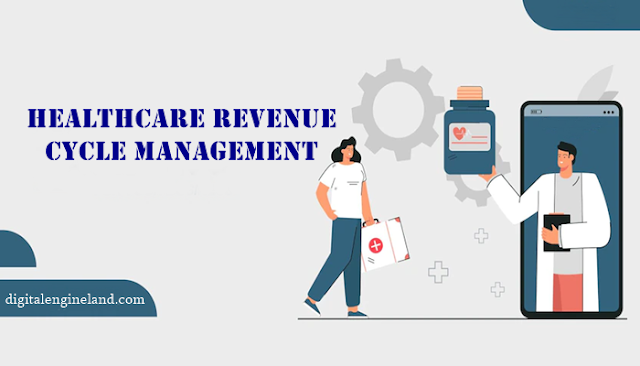Healthcare practitioners in the modern day must overcome unprecedented obstacles to provide quality patient care while achieving financial success.
Service providers feel the effects of rising operating expenses and competition, shifting regulatory concerns, convoluted billing, and a global pandemic. All these factors contribute to the importance of efficient revenue cycle management (RCM) for businesses.
What Is Revenue Cycle Management (RCM)?
Billing, payment processing, and revenue collection are all aspects of revenue cycle management (RCM). A revenue cycle is a continuous process from charging a customer to either receiving payment or writing off the amount. This can be done instantly for some businesses like retail outlets. However, it's a more involved procedure in other fields, like healthcare.
The healthcare RCM process in a hospital setting is the collection of procedures and software programs designed to maximize the amount of money owed by the business in the shortest amount of time. Revenue cycle management helps ensure a steady stream of income for the healthcare facility or the private practitioner.
Why is Healthcare Revenue Cycle Management Beneficial?
There are many advantages of using healthcare revenue cycle management services to handle the hospital's physician RCM. The most prominent benefits of RCM are as follows:
✔️ Improved Revenue
This means that money is pouring in more quickly, in a more reliable manner, and with fewer outlays required to get it. Therefore, managing the revenue streams effectively should be a top priority if we want to boost our bottom line.
✔️ Increased Exposure
RCM's efficacy depends heavily on how well it is communicated. Data analysis and improved transparency into the revenue cycle will help our team spot and fix inefficiencies.
✔️ Value
Good RCM gathers the numbers we need to prove our worth. Those people could be financiers, benefactors, trustees, or strategic partners. This also facilitates the process of coordinating our healthcare organization's goals with those of other groups.
✔️ Streamlined Procedures
Providing a safe and user-friendly system to anybody be it the doctors, administrators, coders, or anybody else who interacts with our income will assist in streamlining our revenue cycle. In addition, errors are reduced through excellent RCM, and staff dissatisfaction and confusion are eliminated.
What Role Do Revenue Cycle Services Play Within Healthcare Organizations?
RCM is essential to the healthcare provider. In a healthcare organization, the revenue cycle entails the following phases:
✔️ Preparing a Claim
It means collecting patient data before submitting a claim. For doctors, this is done before the initial appointment; for anaesthesiologists, it's done on the day of surgery. Verification of the patient's insurance and qualification status is also required.
✔️ Submitting the Claim
After the claim has been drafted, the charges have been recorded and coded, and the claim has been reviewed, the next step is to submit the claim to the patient's insurer.
✔️ Claim Management
Here, we take charge of the claim as it awaits an answer from our insurer. To complete this task, payments must be entered.
✔️ Collecting Receivables
This process involves attempts to get paid by the patient. This may entail taking the matter to collections and sending out billing statements.
✔️ Evaluation
Ultimately, the billing team should compile all the information they've collected from the RCM software and evaluate it.
Accounts receivable can be kept error-free, and the possibility of payment can be increased using an RCM system. As a bonus, it improves claims processing times, does insurance eligibility verification, and balances out expenses with income to maximize profitability.
Why Are RCM Healthcare Services Important?
The procedure from initial delivery to complete payment is complicated for hospital-based specialties. This, at the absolute least, causes a significant lag time between the delivery of services and the subsequent receipt of money. As a result, misunderstandings, frustration, and wasted time are all possible outcomes.
All healthcare systems must employ efficient RCM to succeed. There is an RCM procedure for each of the hospital's service lines. We need to ensure that the procedures are well-considered, well-implemented, and sensitive to the particularities of the field.
Furthermore, due to the volume of patient data involved in the revenue cycle, inaccuracies might have serious legal (and consequently financial) consequences. Therefore, implementing revenue cycle management to decrease the occurrence and impact of errors is crucial.
The Conclusion
In the end, the patient benefits most from RCM's primary objective of raising service provider revenue. In addition to maximizing earnings for healthcare providers, revenue cycle management streamlines their administrative and clinical processes to free up more time for patient care. This entails increased resources for the individual and their care.
Patients today take a more active role in their healthcare decisions and approach the process with a consumer mentality. They want to know exactly how much things cost, have their billing handled invisibly, and have quick and simple access to their billing and payment records. When evaluating RCM strategies, businesses must remember that their patient connection extends well beyond the care team. There is a chance to increase customer loyalty and bottom-line results by providing a straightforward and convenient financial experience.

No comments:
Post a Comment